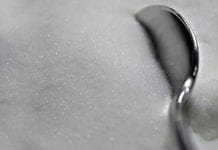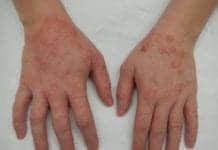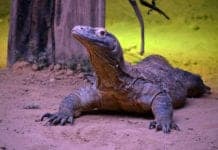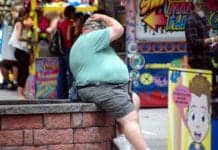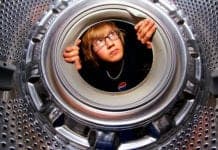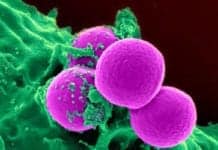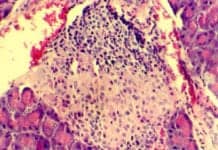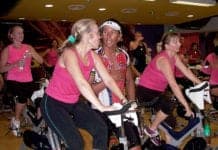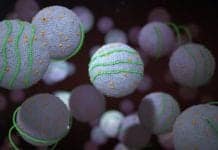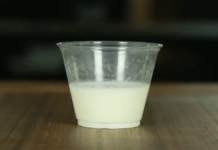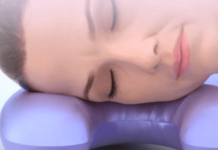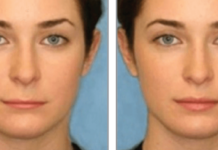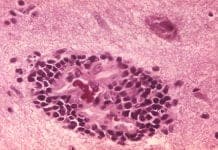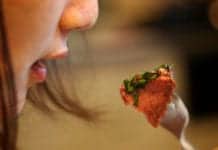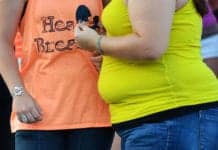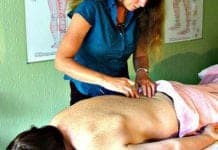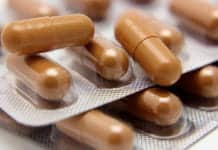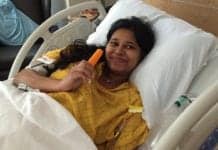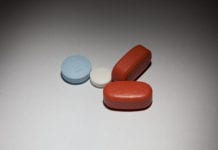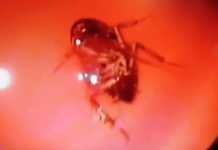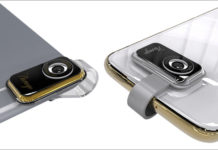Frequent Tanning Bed Usage Could Be Costly to Your Health
Researchers estimated the impact of lifetime costs for patients identified with tanning bed-associated skin cancer, adding up medical costs, years of life lost and lost earnings due to disease.
Too Much Sugar May Lead to Alzheimer’s, Study Says
Sugar breaks down in a reaction known as glycation, and its byproducts can cause damage to brain cells.
Probiotic Cream Made From Body’s Own Bacteria May Cure Eczema
This “natural antibiotic” is superior to pharmaceutical approaches because it doesn’t kill the protective, beneficial bacteria on the skin.
Bird Watching May Reduce Anxiety and Depression
A new study found that if people spent less time outside one week than they did the week before, they were more likely to report that they were depressed or had anxious thoughts.
Komodo Dragon Blood Could Be Used to Fight Infections
Komodo dragons possess antimicrobial saliva and blood, a discovery that could have broader implications for fighting infections in humans.
Chronic Stress Linked to Higher Levels of Obesity
Researchers measured cortisol levels in hair samples of obese people and discovered that these levels were much higher in the participants.
Brain Cells Actually Favor One Parent’s Genes Over the Other
The new study adds a wrinkle to the current understanding of genetics and may hold the answer to the cause and incidence of some brain disorders.
Your Laundry Is Probably a Lot Grosser Than You Think
Your laundered clothes may not be as fresh as you think — especially if you share your washing machine with a housemate.
Chewing Gum Can Damage Digestive System, Even If Not Swallowed
It's a chemical called titanium oxide, present in chewing gum, candy and even toothpaste, that's been shown to be harmful to the digestive system.
Dirty Dozen: Here Are the World’s Most Dangerous Bacteria
They are a veritable deadly dozen of bacteria for which antibiotics have no impact.
Fasting Diet Reprograms Pancreatic Cells, Reverses Diabetes in Mice
The researchers also assessed pancreatic cells from humans with Type 1 diabetes and discovered reprogrammed insulin production after a fasting cycle.
Compound in Red Wine May Boost Lung Health
Researchers tested inhaled resveratrol treatments on mice and found that it ultimately put the brakes on lung decline.
Exercise May Reduce Risk of Relapse for Breast Cancer Survivors
A recent study shows that exercise and weight gain play large roles in the health of breast cancer survivors when it comes to relapsing.
High Levels of This Inherited Protein May Cause Heart Attack, Stroke
Along with cholesterol levels and blood pressure, Lipoprotein(a) is another factor that should be checked at the doctor.
Probiotic ‘Milk Test’ Could Reveal Effectiveness
There’s a test you can do at home to see if your probiotics are actually working — all you need is a glass of milk.
Killer ‘Smart Bacteria’ Found to Wreak Havoc on the Gut
The researchers figured out that the bacteria can somehow sense they have become attached to intestinal cells inside a human and begin to express their genes.
U.S. Life Expectancy Scores Poorly in 2030 Projections
Of the 35 countries assessed, the U.S. ranks 27th in projected life expectancy for both women and men by the year 2030.
How One Woman’s Pain Inspired This Innovative Massage Tool
After studying her own body's chronic pain, Ashley Black was inspired to invent a massage tool that targets the tight fascia areas of the body and also works to diminish cellulite.
Websites Used to Grade Physicians Get an ‘F’ in Helpfulness
Dozens of sites did not even meet the researchers’ inclusion criteria, which required having written reviews of doctors, no fee for use, a search-by-name option, and not being restricted to a certain specialty or insurance plan.
Balancing Gut Bacteria Could Be the Key to Solving Chronic Stomach Problems
Researchers are hopeful that a new method of cutting the amount of harmful bacteria in the stomach and intestines can reduce gut-related disease burden.
Your Creativity Could Affect How Much You Sleep
The two kinds of creativity, visual and verbal, and how they affected sleep duration, time and even quality, were observed in undergraduate students.
This Innovative Pillow May Prevent Sleep Wrinkles
The pillow's design reinforces good sleeping habits, not wrinkles.
Probiotics May Be Helpful for Premature Babies
Although they still pose risks for extremely low birthweight babies, probiotics have been shown to significantly reduce the risk of deadly gut-related conditions in premies.
Eating More Fruits and Veggies Can Improve Mental Health
The new study assessed vitality, depression, anxiety, motivation and other aspects of mental well-being among groups of participants who were directly given more fruits and vegetables.
Married People Have Lower Levels of This Harmful Stress Hormone
A new study found that being married essentially reduces a person’s chances of facing stress-derived health problems, and the waning level of cortisol among spouses has a lot to do with it.
Sibling Rivalry: Are First-Born Children Smarter?
Researchers found that parents of multiple children routinely alter their treatment of non-first born children, which affects their IQ and perhaps even personality traits.
Scientific Formula Reveals ‘Ideal’ Female Lips
In an effort to hopefully reduce the amount of botched lip surgeries, researchers took to Facebook to create a poll about ideal female lip size and appearance.
New Fathers Get Depressed After Childbirth, Too
A new study shows that men who are depressed during their partner's pregnancy experience an upswing in their symptoms nine months post childbirth, which can be due to several factors.
11-Year-Old Girl Invents Her Own Glittery Prosthetics
Jordan Reeves' limb difference isn't slowing her down; she's embracing her unique condition by raising awareness for other children with limb differences and even designing her own 3D prosthetics.
Scientists Mimic Deadly Rabies Virus to Destroy Brain Cancer Cells
Researchers have modeled nanoparticles the same size and shape as rabies to reach the brain's nerve cells, with the goal of targeting cancerous ones.
Eating Less May Contribute to Living Longer
It turns out that the cells our bodies use to digest food need a break every now and then.
Bigger Bellies Linked to Bigger Heart Disease, Diabetes Risk
This sort of research allows doctors and scientists to examine whether variations in genes directly impact disease function.
Vegetable Oils May Cause Fatigue, Migraines and Dementia
Plaque buildup is a known precursor to serious neurodegenerative diseases, and while other oils carry this trait, vegetable oil is the type with which it's most prevalent.
Meds For Low Back Pain Should Only Be Used When Other Treatments Fail
New guidelines from the ACP advise that other therapies for treating lower back pain, like acupuncture and rehab, should be considered before taking potentially addictive pain medications.
Peppertree Berries May Fight Deadly Superbugs
The ready abundance of the peppertree plant means that, should the treatment prove effective in human trials, the medical community would face no shortage of the disease-fighting berries.
Air Pollution Linked to Higher Diabetes Risk Among Kids
The study adds a new threat to the list of lifestyle and environmental factors that contribute to diabetes, note the researchers.
Thirdhand Smoke May Be More Toxic Than Secondhand Smoke
The researchers found that exposure to thirdhand smoke, or the tobacco pollutants often left behind on surfaces, caused significant increases in damage to human DNA.
Let’s Get This Straight: Good Posture May Improve Mood
While chronic depression must be treated by a professional, it is interesting to note that such a simple change in the body can affect mood almost immediately.
New Chocolate Pill Claims to Cut Risk of Dementia and Heart Attack
A new chocolate supplement pill can help reduce the risk of heart attack, stroke and dementia.
Pregnant Women Should Stop Eating Licorice, Study Says
The active ingredient in licorice has been found to impact fetal brain growth and development, and you may be surprised by how common it is to ingest it without even eating candy.
Breathe, Breathe, Bite: Eating During Labor May Be Beneficial
New research finds that allowing pregnant women to ingest more than water or ice chips during labor is tied to a 16-minute shorter labor, on average.
Your Hearing Might Not Be As Sharp As You Think It Is
Nearly a quarter of people between the ages of 20 and 69 who think their hearing is either fine or excellent show signs of hearing loss.
Campaign Launched to Get More Women Into HIV Heart Health Study
Since antiretroviral medications used to treat HIV increase one's risk of heart disease, a clinical trial seeks both male and female participants to test whether a heart disease pill will help.
Doctors Remove Large Cockroach Lodged Inside Woman’s Skull
The woman woke up in the middle of the night with a “crawling sensation” inside her head.
This Song Was Especially Designed to Make Babies Happy
The "Happy Song" was expertly engineered to make babies feel joyful and happy.
Pillow Talk: Here Are the Best Pillows for Beauty and Health
Take a closer look at these four beauty pillows, specifically designed to maintain the youthful, healthy-looking appearance of facial and neck skin.
Smartphone Add-On Camera Lets You See Beneath the Surface of Your Skin
NURUGO's smartphone camera accessory and app can help people monitor their skin health and catch early signs of potentially dangerous conditions before they even become visible.
Something Interesting Happens to Our Brains While We Sleep
Scientists believe that brain synapses shrink during sleep and expand when activated during one’s waking hours, and such expansion is a marker for learning and memory.
Miss or Must-Have? Rank These Health Innovations
Vital Updates scours the web daily for innovative health products. Cast your vote to let us know which ones you think are the most interesting.
Here’s What Space Travel Does to the Brains of Astronauts
The study found that the brain’s gray matter decreased or increased, based on how long the astronauts were in space.



